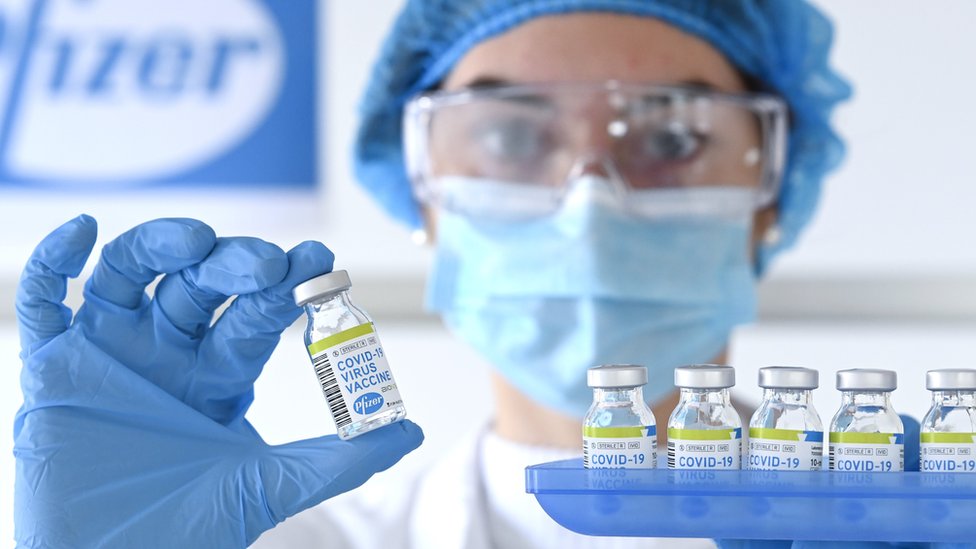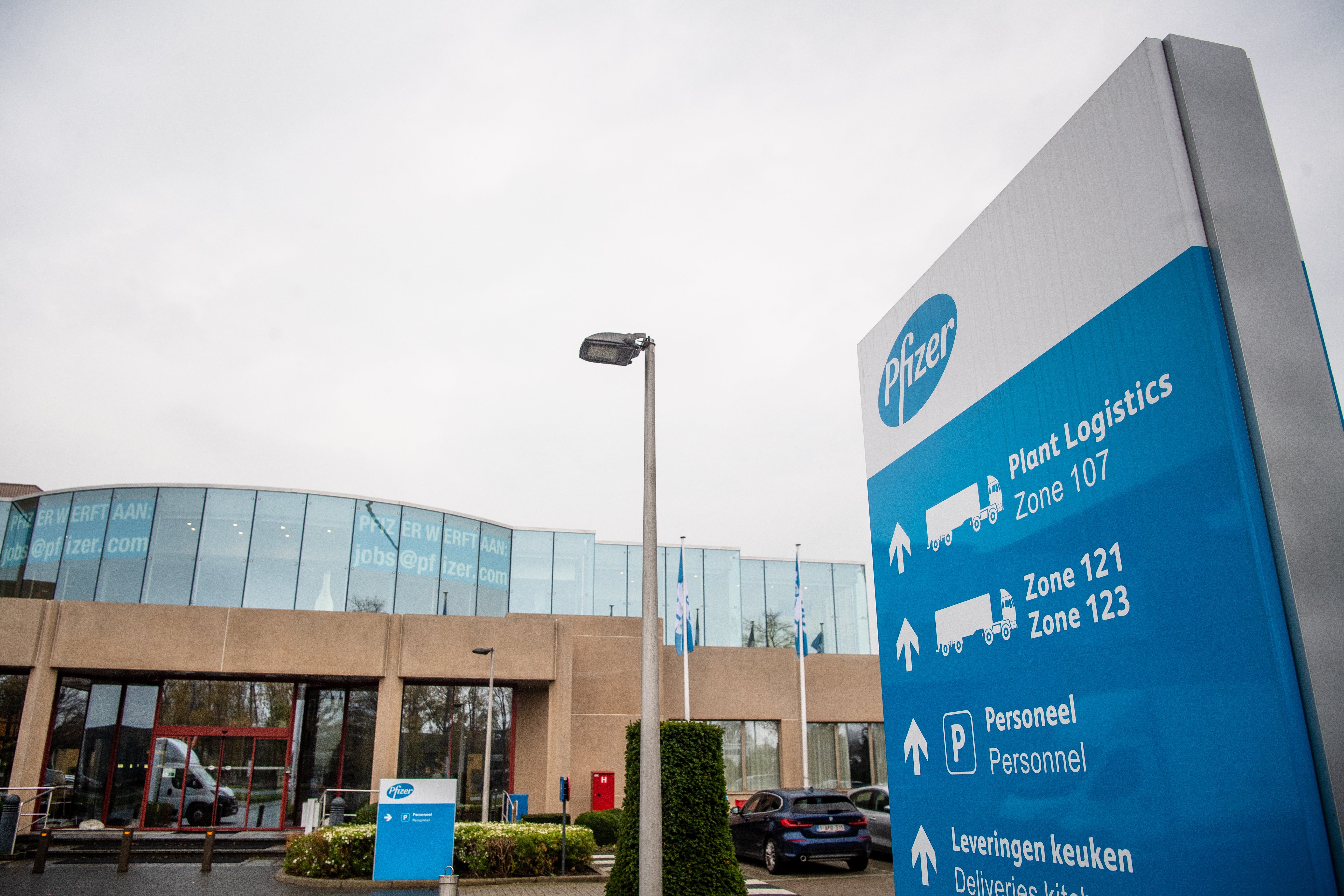COVID will be with us FOREVER but Brits must take the vaccine if they want social distancing to end, Jonathan Van-Tam warned tonight.
The Deputy Chief Medical Officer said "we will never eradicate coronavirus" but urged Brits to take the jab if they want their dreams of a return to normal life to come true.
⚠️ Read our coronavirus live blog for the latest news & updates
Asked by The Sun when Covid measures could end, he said the bug is likely to "be with human kind forever" and will become a "seasonal problem."
His remarks came after Britain became the first country in the world to give a Covid jab the green light.
Experts deem the Belgium-made Pfizer and BioNTech vaccine safe, meaning a rollout to millions of people can now begin.
About 800,000 older people, care home workers and vulnerable people will be able to get access to the vaccine from next week, and millions across December.
Prof Van-Tam said he did not think we would soon be able to have a "massive party, throw our masks and hand sanitiser away and say it's behind us like the end of the war".
But Prime Minister Boris Johnson then appeared to correct him in a bust-up live on air saying he had "high hopes" the vaccine would allow life to return to normal.
'WITH HUMAN KIND FOREVER'
Prof Van-Tam then replied: "I do like to be challenged when I have, perhaps, not made myself clear, and the Prime Minister has picked me up on this occasion, and it's quite alright because it gives me a chance to clarify what I mean here.
"I do not think the Government will continue to have to recommend social distancing, masks, and hand sanitiser forever and a day.
"I hope we will get back to a much more normal world.
"But, the point I was trying to make was - do I think, possibly, some of those personal habits for some people will persist longer, and, perhaps, become enduring for some people, yes, I think that's possible."
Mr Johnson replied: "As in the Far East. Well, who knows?"
Appearing alongside the Prime Minister and NHS England chief executive Simon Stevens during tonight's coronavirus briefing, Prof Van-Tam said: "I don't think we're going to eradicate coronavirus ever.
"I think it's going to be with humankind forever.
"I think we may get to a point where coronavirus becomes a seasonal problem - I don't want to join too many parallels with flu - but possibly that is the kind of way we would learn to live it."
The medical chief also stressed the problem will not go away if people do not take the vaccine when it is offered to them.
If you want that dream to come true as quickly as it can come true then you have to take that vaccine when it is offered to you. Low uptake almost certainly mean restrictions will last longer.
Professor Jonathan Van-Tam
He said: "This vaccine isn't going to help you if you don't take it. You will need two doses of this vaccine to have full protection.
"Watching others take it and hoping it will protect you too doesn't work necessarily. We don't know if it prevents transmission."
Dashing hopes of a speedy rollout for the whole nation, the top professor also said it will take "months not weeks" and warned that low uptake of the jab will "almost certainly make restrictions last longer".
Giving the blistering wake-up call, he said: "Everyone wants social distancing to come to an end, we are fed up with it.
"But if you want that dream to come true as quickly as it can come true then you have to take that vaccine when it is offered to you. Low uptake almost certainly mean restrictions will last longer."
HERE TO STAY
The PM said: "We are no longer resting on the mere hope we can return to normal but rather the sure and certain knowledge that we will succeed and reclaim our lives and all the things about our lives that we love."
But had added "we have to fight on" and continue with the tougher Tier rules - which came in today after the lockdown lifted - until the vaccine can get to those who need it.
He stressed that "for the time being, we've got to take it that tiering is going to be a very, very important part of our campaign against Covid."
He dodged questions on whether it would roll on past February and towards Easter - as some critics fear.
NHS boss Simon Stevens said they were gearing up for the biggest vaccination programme in the history of the health service and they were "raring to go".
He said that the bulk of jabs for people who need it will be done by April.
Covid Vaccine: Who, When and How?
Simon Stevens, Chief Executive of the NHS, today said the following about the new Covid vaccine:
Who? "The Joint Committee on Vaccination and Immunisation have clearly recommended the NHS should make sure those first offered are those at highest risk. In practice, that means starting with the over 80s, as well as people in care homes as well as staff looking after them.
When? "In the new year, we will be extending that to many more people across the country. Although we are the first health service in the world to get vaccinating supplies from the manufacturer are phased.
"The bulk of this vaccination program will take place in the period January through to March or April for the at risk members of the population. Since you need two jabs… typically 21 days apart… that means we’ve got to reserve the second dose for those getting the first dose in December."
How? The NHS chief said the vaccine "is logistically complicated".
He said: "We have to move it around the country in a carefully controlled way. It also comes in packs of 975 people’s doses. You can't at this point just distribute it to every individual GP or pharmacy. Next week 50 hospital hubs across England will start offering the vaccine to over 80s, carehome staff and those identified by GVI.
"The hospital will get in touch with you, you don’t need to do anything yourself."
He added that the NHS intends for vaccination centres to rollout the jab as more become available in the months to come.
The drug has been backed by independent regulator the Medicines and Healthcare Products Regulatory Agency (MHRA).
Prof Van-Tam revealed today he was "quite emotional" at this morning's vaccine news.
With a very effective vaccination and high uptake, 99 per cent of covid related mortality and deaths will be eliminated in the first phase of the vaccine rollout.
But he warned that everyone must be "patient and realistic" and wait their turn.
And while they were "very hopeful" it would prevent transmission, the experts didn't yet know it for sure.
If people fail to follow the rules now, there will be a "tidal wave" of infections going into Christmas, he said.
A YouGov poll this evening found that one in five Brits were not confident at all or not very confident that Pfizer/BioNTech vaccine is safe.
The bulk of the doses will be dished out next year, when more come on stream and extra doses are manufactured.
The jab is the first of several that are expected to be approved in the coming weeks - including the Oxford vaccine.
The news came as:
- England's second national lockdown ended today, plunging the nation into harsher restrictions - but opening shops, gyms and leisure centres
- 50 NHS hospitals will be ready to deliver the jab from next week
- Care home residents, NHS staff and the elderly will be among the first to receive drug
- UK has secured 40 million doses of the Pfizer/BioNTech vaccine - enough to vaccinate 20 million people - with 10 million doses due in the UK by the end of the year
- The Nightingale hospitals, along with football clubs, race-courses and tennis courts, will be transformed into mass vaccine centres
- A scientist warned it may take six months to get everyone vaccinated
And he confirmed that people in care homes would be the first to get it - with the oldest residents first.
But the Government haven't set out a time frame yet on how quickly they will get it.
MP Chris Green said vaccines should only be given out on a voluntary basis - and the PM agreed.
He said it is "not part of our culture or ambition" to force jabs onto anyone, but that people should take it if they can.
The jab needs to be kept at -70C and needs two doses taken 21 days apart to be effective.
The jab - which is 95 per cent effective and developed by pharmaceutical giant Pfizer and German firm BioNTech - is safe for use, health regulators say.
It means the UK is the first country in the world to give a vaccine the green light.
It will be deployed as "quickly as it is manufactured", the Health Sec said.
https://news.google.com/__i/rss/rd/articles/CBMiWWh0dHBzOi8vd3d3LnRoZXN1bi5jby51ay9uZXdzLzEzMzYzODQ0L3dlbGwtbmV2ZXItZXJhZGljYXRlLWNvcm9uYXZpcnVzLWpvbmF0aGFuLXZhbi10YW0v0gFdaHR0cHM6Ly93d3cudGhlc3VuLmNvLnVrL25ld3MvMTMzNjM4NDQvd2VsbC1uZXZlci1lcmFkaWNhdGUtY29yb25hdmlydXMtam9uYXRoYW4tdmFuLXRhbS9hbXAv?oc=5
2020-12-02 18:33:00Z
52781222272029























